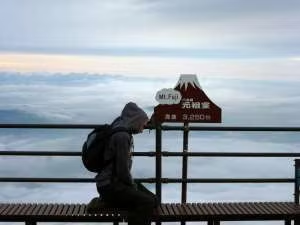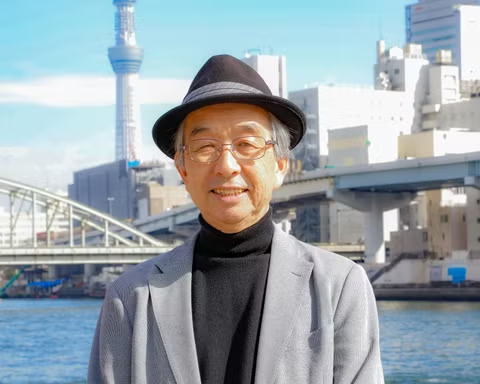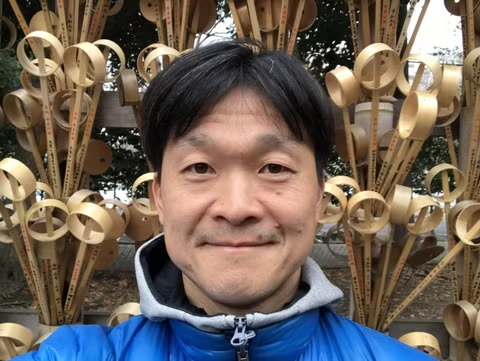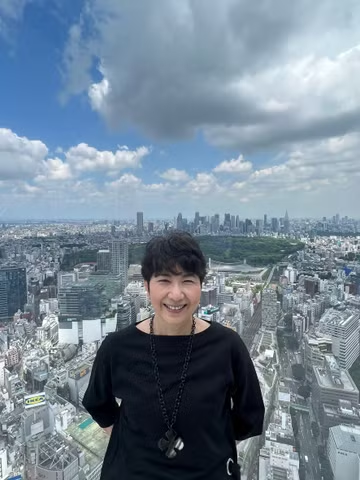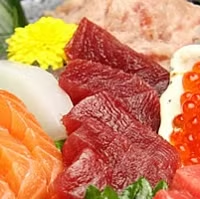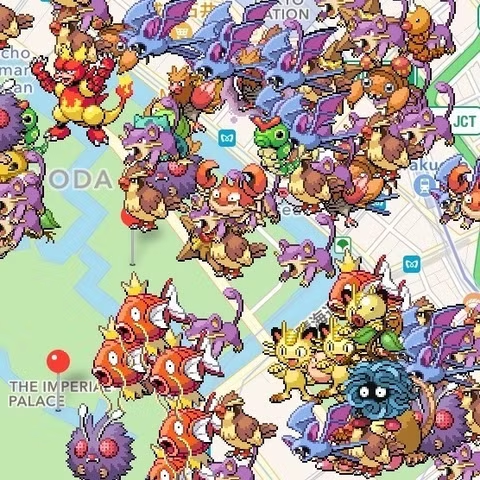Take a boat across a lake and enjoy stunning views of the surrounding nature, enjoy the picaresque Mount Fuji reflected in the shimmering waters, or sit with a hot drink at a lake with icebergs floating on its surface during winter time. Wherever you are traveling to, you can enjoy beauty and tranquil waters at the following lakes:
Lake Chuzenji (Nikko)
![]()
Popular with foreigners charmed by Lake Chuzenji during the Meiji Era for its cool climate, embassy villas for the United States and European countries were built one after another there. As a summer resort, you can get a glimpse of Western history. There are traces of those buildings at the lake and the surrounding vicinity. The Italian Embassy Villa Memorial Park was built in 1928 and up to 1997, was used by successive generations of ambassadors and their families. Afterwards, it was donated to Tochigi Prefecture and reconstructed, and was opened to the public as a free park in 2000. Note the regional cedar used by the celebrated American architect Antonin Raymond. It is a unique construction utilizing the cedar bark for the entire structure from exterior to interior which is splendidly harmonized with the rich nature.The villa is 2 stories high and was designed meticulously so that you can see the lake from every room. The fireplace is surrounded by Western-style furnishings so you can spend an elegant time there. Going down to the lake, there is a pier and from there, you can view the scene of Mt. Nantai.
The villa residence has been remodeled to become an international summer resort museum. In contrast with the main embassy residence, the forest view from the windows of this residence is outstanding. Photographic panels and videos of Lake Chuzenji that has become an international meeting place are introduced.
Nikko Shinko Church is a Tangible Cultural Property designated by Tochigi Prefecture. Many foreign visitors who came to spend time at Nikko as a summer resort wanted to have a church established there and so it was built. James M. Gardiner, the architect behind the church’s stately Gothic stone construction, and his wife are buried there. It has a unique atmosphere with andesite from the nearby Daiya River and local Kanuma stone being used. The stained glass noticeably stands out. Aside from worship services and special events, you can tour the church free of charge. Meiji-no-Yakata is a nationally designated Tangible Cultural Property. It was once a villa built for an American trader, but it is now a restaurant specializing in yoshoku, Western-influenced Japanese cuisine. The building has a Georgian design which was popular in 18th-century England. The rice omelette and cheesecake are famous. The restaurant is always crowded so while waiting you can take a stroll at the same site through the garden.
Admission: Free
- Guidebook from Planetyze about Lake Chuzenji
- Reviews from TripAdvisor about Lake Chuzenji
- Tours of Lake Chuzenji
Lake Kawaguchi (Mount Fuji)
![]()
When Mt. Fuji was registered as a World Heritage site in 2013, the Fuji Five Lakes region, including Lake Kawaguchi, was also registered as part of it. Up until that point, it was popular as a resort area filled with leisure for long holidays in summer and winter, but with its registration, it became even more of a focal point. Lake Kawaguchi is the 2nd-largest lake in area among the Fuji Five Lakes. The lake is surrounded on three sides by mountain ranges, but the south side opens up wide and it is there that the grand Mt. Fuji towers over everything. In good weather, Mt. Fuji is reflected on the lake as the “Reverse Fuji”, and the mirror-like symmetrical view of the Fuji reflection and the true Mt. Fuji is said to be the most beautiful sight at Lake Kawaguchi.
At the nature-filled Lake Kawaguchi, you can thoroughly enjoy the beauty of the four seasons. There are cherry blossoms in the spring and festivals are held everywhere in the area. The deep green forests in summer are lovely and marine sports are at their peak on the lake. Moreover in August, there are fireworks festivals at 4 of the Fuji Five Lakes, and the shooting fireworks brilliantly light up the summer night sky. The colorful leaves in the fall are wonderful. The “Koyo Meguri” trekking event is held where you can enjoy walking while viewing the leaves dappled in red. And then in winter, Mt. Fuji is covered in snow and on sunny days that beautiful sight is reflected on the lake surface. This other Fuji is clearly displayed on the mirror-like surface and the appearance of this beautiful Reverse Fuji is especially outstanding in winter. And from mid-January to late February, a seasonal event known as the Winter Fireworks is held. On the lake shore at the foot of Mt. Fuji, viewing fireworks launching up into the crystal-clear night sky of winter is exceptional.
No matter how you say it, what makes Lake Kawaguchi so attractive is its wealth of leisure. There are many museums and art galleries nearby, and at The Music Forest, which is reminiscent of the avenues in Europe, music boxes that are unique in the world are displayed and are popular with the tourists. Next to it is a golf course and tennis court, and on the lake, recreational boating and other marine sports are also at their best. Fishing is also popular there and the area is a hit as a Mecca for black bass. Right by that is the Fuji Q Highland amusement park and the outdoor park Forest Adventure among the other many leisure facilities when it comes to the nature-filled Lake Kawaguchi. It’s a resort overflowing with attractions the whole year round with sites like campgrounds, onsen and skiing in the winter.
Admission: Various
- Guidebook from Planetyze about Lake Kawaguchi
- Reviews from TripAdvisor about Lake Kawaguchi
- Tours of Lake Kawaguchi
Shiretoko Five Lakes (Hokkaido)
![]()
Shiretoko Five Lakes is surrounded by a primeval forest and the Shiretoko Mountains. Within this region of lush flora and fauna, you can experience the grandness of nature here. There are 2 ways to navigate through Shiretoko Five Lakes. First, there is the wooden boardwalk course which has a total length of 800m and goes as far as the shores of one of the lakes. The boardwalk ranges from 2 to 5 meters in height and there is an electric fence with 7000 volts of current running around it so in the unlikely event of any brown bear encounters, people can still walk securely. Also, there are 2 observation points on the boardwalk from where you can see the Okhotsk Sea in the distance and the wonderful view of the lake and the reflection of the Shiretoko Mountains. You can also encounter wild animals such as deer in the area. The other course involves the nature trails. You can take a walk once you get a lecture at the Shiretoko Five Lakes Field House. At the carefully protected primeval forest in Shiretoko, you can come upon a myriad of plants and animals. However, during the peak season of brown bear activity, the trails can only be traversed with a limited number of people following a licensed guide. Please follow the rules to ensure that this untouched nature is continued to be protected.
During winter, the boardwalk is closed, but there are opportunities to go to the wetlands which aren’t usually accessible in the summer. Shiretoko in the harsh winter provides a valuable experience to see the animals that can withstand the cold and the quiet forest. At this time, there are also tours which you can enjoy Shiretoko in winter. From being able to walk on top of the lakes to viewing the icebergs floating on top of the Okhotsk Sea, this is a once-in-a-lifetime chance (reservations/fee required).
Admission: Free
- Guidebook from Planetyze about Shiretoko Five Lakes
- Reviews from TripAdvisor about Shiretoko Five Lakes
- Tours of Shiretoko Five Lakes
Goshiki-numa (Fukushima)
![]()
Mt. Bandai stretches over the Fukushima municipalities of Kita-Shiobara Village, Bandai Village and Inawashiro Town. A steam explosion on the mountain in 1888 created several hundred lakes and marshes. Several dozen groups of these lakes were brought together to be called Goshiki-numa (Five Colored Lakes) located within Bandai Asahi National Park. The prime feature of Goshiki-numa is that each of the lakes’ primary colors such as cobalt blue and emerald green will change depending on the angle of the light and the viewing direction. These mysterious changes in color along with the surrounding Mother Nature inevitably soothe the hearts of visitors.
Walking along Goshiki-numa Walking Trail, you can observe 10 ponds along the way. You can also see the giant red pines that were planted following the eruption of Mt. Bandai. If you decide to make your way around the famous ponds at Goshiki-numa, then going by this scenic trail is recommended. The largest of the ponds, Bishamon-numa Pond is an attractive cobalt-blue where you can also face the grand Mt. Bandai and even get on a boat. There is Aka-numa Pond with its beautiful green and the surrounding thick reddish-brown moss, Midoro-numa Pond where the clarity of the blue differs on the east and west ends of the pond, Benten-numa Pond which has Mt. Agatsuma in the background, Ruri-numa Pond which changes color depending on where you view it, Ao-numa Pond which shines in pale blue, and Yagi-numa Pond which is astounding during autumn. On the trail which goes as far as 3.7 kilometers, you can also observe wild birds and Mt. Bandai, and in summer and autumn, the fresh greenery and fall foliage are beautiful. The minerals that were thrown forth after the eruption of Mt. Bandai dissolved into the water, and the amount and quality of the mineral matter were responsible for the colors that change depending on the amount of the light and the angle of view. This is a course where you can experience the brilliance of the mysterious ponds and the beauty of grand nature which differs depending on the season.
Admission: Free
- Guidebook from Planetyze about Goshiki-numa
- Reviews from TripAdvisor about Goshiki-numa
- Tours of Goshiki-numa
Lake Tagokura (Fukushima)
![]()
Lake Tagokura which was formed from the creation of Tagokura Dam is a popular tourist spot not just for its size but also for the beauty of its surrounding nature throughout the seasons. Formed from the stoppage of the main current of the Tadami River, the wide scenery downstream can also be enjoyed. The lake has also been selected as one of the Top 100 Dam Lakes in Japan. From the observation point at the dam, Lake Tagokura can also be seen downstream, and at the back of the lake, so can Mt. Gamoudake and Mt. Asakusadake which make up two of the Three Grand Mountains of Tadami. The sight of Mt. Asakusadake which still has snow even in the summer is reminiscent of the Swiss Alps. There are walking trails in the vicinity, cycling and hiking can be enjoyed, and there are even fishermen waiting to land some big char. Upstream of the lake can only be accessed by boat, but there are excursion cruises which are recommended to fully and leisurely enjoy the surrounding nature from the top of the lake. No matter which season it is, there is always a lovely lake view with the fresh greenery of summer against the snow-capped mountains and the leaves of autumn. Access is closed to the area in winter due to the heavy snow, but after the spring thaw, the entire lakeshore is covered in bright red snow camellia.
Tagokura Dam, which is a part of Echigo Sanzan-Tadami Quasi-National Park and has been selected as one of the Top 100 Dam Lakes in Japan, is also the spot to view some wonderful scenery. Tagokura Power Station which is attached to the dam has one of the largest power output figures in the country and is one of the representative hydroelectric stations for Japan. As a large-scale dam with a total reservoir capacity of 5 tonnes, the size is undoubtedly amazing. The structure of the hydroelectric plant is made under the theme of water with the Denpatsu Tadami Museum being recommended for its various exhibits.
Admission: Adult: ¥ 900 / Child: ¥ 450
- Guidebook from Planetyze about Lake Tagokura
- Reviews from TripAdvisor about Lake Tagokura
- Tours of Lake Tagokura
Do you want to go to the best spots of Japanese nature and not to be afraid of being lost or doing something you should not?
You are in your trip and probably want to take the best from the country in your short time there. For this, we recommend you to contact one of our guides. They can orientate you and you will certainly go to the right places, save your time and have a better experience. But if you think that it is terrible to make trips with guides and have to follow a schedule, we present you the differential of GoWithGuide, you can customizable your itinerary following your interests and also go on your time, without needing rushing. Furthermore, you don't need to be in a huge group, you can only with the people you are traveling and that you care, learning more about the culture and history of the place.
But you probably think that all this will be so expensive, right? No.
GoWithGuide offers private guides to make customizable itineraries, tours to guide you to the best spots and private cars to you to be able to navigate Narita and Japan without depending on public transportation, all these for an affordable price.
Watch the following video to know more.
Blogs about Japanese Nature
5 Impressive Fukuoka Nature Spots
